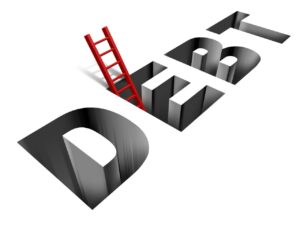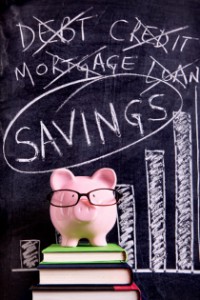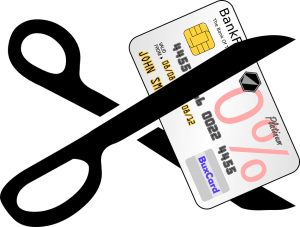The new year is rapidly approaching. With the transition into a new year, many make hopeful resolutions. Some of the more common ones are to lose weight, get organized, or quit smoking. The new year is full of potential and that makes it the perfect time for this kind of ritual. The current economic climate makes paying off debt a good candidate for your new year’s resolution list.
With the Canadian consumer debt rising to $2.4 trillion, there is a good chance you or someone you know is in debt. It is evident that debt has dropped in priority, which hurts both the consumer and the economy.
BNN Bloomberg says, “Economists say we may already be in one, but things could start looking up partway through 2024.”
With this in mind, it is clear it is more pertinent than ever to pay off the debt you owe. Financial experts agree that paying off as much debt as possible is the best way to prepare for a recession.
Here are some reasons why being debt free before the recession is the optimal financial resolution.
Fewer debt payments
The last thing you want to worry about when entering a recession is paying off debt. If possible, you should pay more than the minimum to pay off debt faster. The quicker you pay off debt, the fewer debt payments you’ll have to make. This ensures that if hard times come, you have the funds to make ends meet.
Without an emergency fund, you may end up incurring even more debt. With the interest rate hikes, the new debt taken out during the recession will be even tougher to shake and cause a debt snowball. That is why you should pay off debt so you free up additional capital to fall back on during the recession.
Good credit standing
Naturally, the best way to improve your credit score is to pay off debt. A better credit score could be beneficial if you need another personal loan in the future. This would be even more beneficial going into recession as money is sure to get tight for everyone.
Lower interest rates and more credit available
During a recession, it can be challenging to access new debt. Whether through a bank loan or credit card, accessing new debt can become challenging. Just as consumers become more risk-averse during a recession, so do lenders. This makes it harder to get a personal loan, and if you find some to take out, they will likely be debts with the highest interest rate.
By paying off your debt prior to the recession you will have a nest egg to lean on. The nest egg can help when times get tough, so you don’t need to access new debt.
Mental health
While mental health may seem secondary when discussing debt, that shouldn’t be the case. Being in debt can cause a lot of unnecessary stress. Paying off your debt will affect not only your financial life but, also your personal life.
Paying off debt for mental health purposes is especially true during a recession. The following year will cause a lot of people to be unsure and weary about what’s to come. With an additional debt to worry about, your mental health will undoubtedly take a hit. Paying off your debt will bring peace of mind and make the recession more manageable.
How to pay down debt
Now that you know why paying off your debt prior to the recession is a good idea, here are some tips on how best to do so.
List all of your debts
You may be asking where to start. List all of your debts and find out which ones you can pay, which ones you have to pay immediately, and which ones can wait. Having some organization can help you tackle your debt better.
Start with your credit card debt
One of the best things to do when going into a recession is to reduce debt on high-interest credit cards. Credit card debts often have the highest interest rates compared to other forms of credit. High-interest debt rates will lead to you increasing your debt load quicker, so paying it off first is your best option.
Keep on top of your mortgage
While it looks like interest rate hikes have finally levelled off, don’t let your guard down just yet. With rate cuts only expected to start in July 2924, it’s best to wait before loosening your purse strings and wallets. If you’re really struggling talk with your lender to see what options are available. Many are offering options like payment deferral to help.
Find lower interest rates and consolidate
If you have high-interest debt, consolidate debts into one lower-interest alternative. When you consolidate debts, you save money in interest fees every month. It is also often easier to pay one bill with a single due date rather than managing several due dates a month.
What to do if you can’t pay down debt
While paying off your debt prior to a recession is the best option, it isn’t a reality for many. Debt can be difficult to tackle, especially in a short time frame. Some cannot make even minimum monthly payments and will struggle more during the recession.
However, there are still options if you can’t make monthly payments and pay off debt. For example:
Reach out to your banks and lenders
If you are struggling and can’t make even minimum payments, it is best to reach out to your bank or lender. Be sure to reach out to them often and early so they know your situation. Reach out before the payment is due so you can make alternative payment arrangements. Explain your situation and find out if they can offer assistance outside of minimum monthly payments.
Find out if you have credit insurance
If you’ve been retrenched or put on unpaid leave, you may be able to claim from credit insurance. Credit insurance covers debt repayments if you have a loss of income. Oftentimes, people do not know they have credit insurance. Be sure to check your policy on store cards, home loans, and car finance agreements to see if it was included. Credit insurance could cover debt repayments for up to a year, so be sure to check if it is an option.
Take a payment holiday
Payment holiday agreements with credit providers allow you to stop making monthly payments. Payment holidays are temporary, and you still owe the amounts you have yet to repay. It is important to note that payment holidays do not affect your credit report.
If you are looking for the best way to become debt-free, Consolidated Credit can help. Our team of expert Credit Counsellors can help create a plan to pay off debt.




